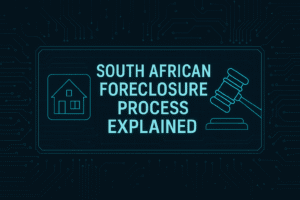Table of Contents
The Importance of Judicial Oversight in Protecting Homeowners from Unlawful Repossession in South Africa
Unlawful home repossession and auction can have disastrous consequences for homeowners in South Africa. As we discussed in our previous blog post, homeowners must be aware of their rights under the National Credit Act (NCA) to protect themselves from such practices. In this article, we will focus on the role of judicial oversight in safeguarding homeowners from unlawful repossession and how recent developments in the South African legal landscape have strengthened the protection of homeowners’ rights.
The Role of Judicial Oversight in Home Repossession Cases
Judicial oversight refers to the involvement of judges and the court system in monitoring and regulating the home repossession process. This oversight is crucial for ensuring that the rights of homeowners are protected and that lenders and other parties involved in the repossession process comply with the NCA and other applicable laws.

Judicial oversight can help protect homeowners in several ways:
- Ensuring compliance with the NCA: Judges play a vital role in making sure that lenders and other parties adhere to the provisions of the NCA, including proper notice requirements, debt counseling, and the right to reinstate a credit agreement.
- Scrutinizing the legality of legal proceedings: Judges can examine the legality of the legal proceedings initiated by lenders, including the validity of judgments obtained and the compliance with the requirement to set a reserve price for auctioned properties.
- Balancing the interests of homeowners and lenders: Through judicial oversight, courts can strike a balance between the rights and interests of homeowners and lenders, ensuring a fair outcome for both parties.
Recent Developments in Judicial Oversight
Several recent developments have strengthened judicial oversight in South Africa, further protecting homeowners from unlawful repossession:
- The Nkata Judgment: In 2016, the Constitutional Court delivered the landmark Nkata judgment, which clarified the right of homeowners to reinstate their credit agreement under Section 129(3) of the NCA. This judgment has made it more difficult for lenders to rely on outdated judgments or redundant legal proceedings when pursuing foreclosure.
- The Reserve Price Requirement: Since 2018, South African law mandates the setting of a reserve price for properties sold at auction. This requirement ensures that properties are not sold for a fraction of their market value, protecting homeowners from substantial financial losses.
- Increased scrutiny of foreclosure practices: In recent years, South African courts have become more vigilant in scrutinizing foreclosure practices, questioning the actions of lenders, and ensuring that homeowners’ rights are protected.

How Homeowners Can Benefit from Judicial Oversight
To benefit from the protection offered by judicial oversight, homeowners should:
- Engage an experienced attorney: When facing repossession and auction, it is essential to work with an attorney who is familiar with the NCA, the Nkata judgment, and the intricacies of South African repossession law.
- Actively participate in legal proceedings: Homeowners should stay informed about any legal proceedings involving their property and actively participate in these proceedings to ensure their rights are protected.
- Appeal to higher courts when necessary: If a homeowner believes that a lower court’s decision is unjust or that their rights have not been adequately protected, they can consider appealing to a higher court for further scrutiny.
The strengthened judicial oversight in South Africa provides an essential layer of protection for homeowners facing repossession and auction. By understanding the role of judicial oversight and actively engaging with the legal process, homeowners can better safeguard their rights and secure a fair outcome in their repossession cases. Combined with the information in our previous article on unlawful home repossession and auction, homeowners can feel more confident in navigating the complex landscape of repossession law in South Africa.



